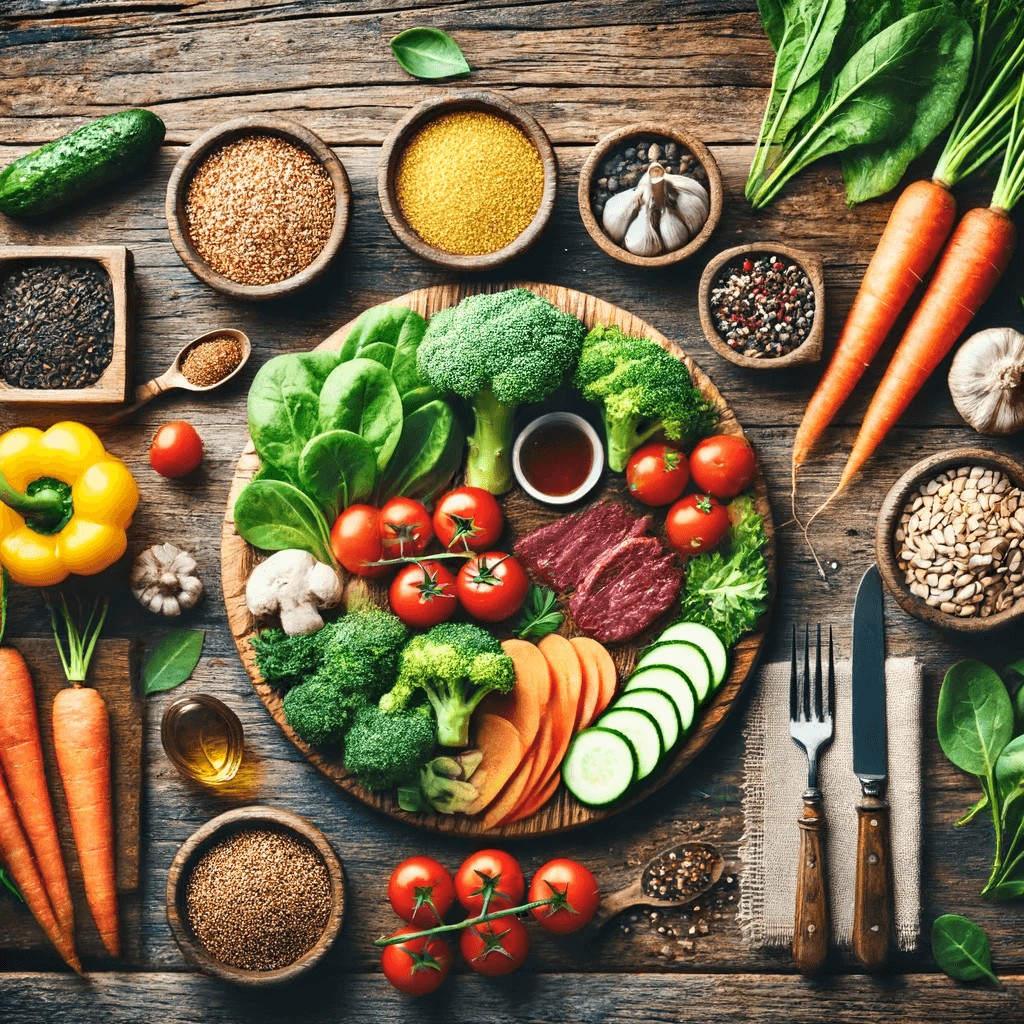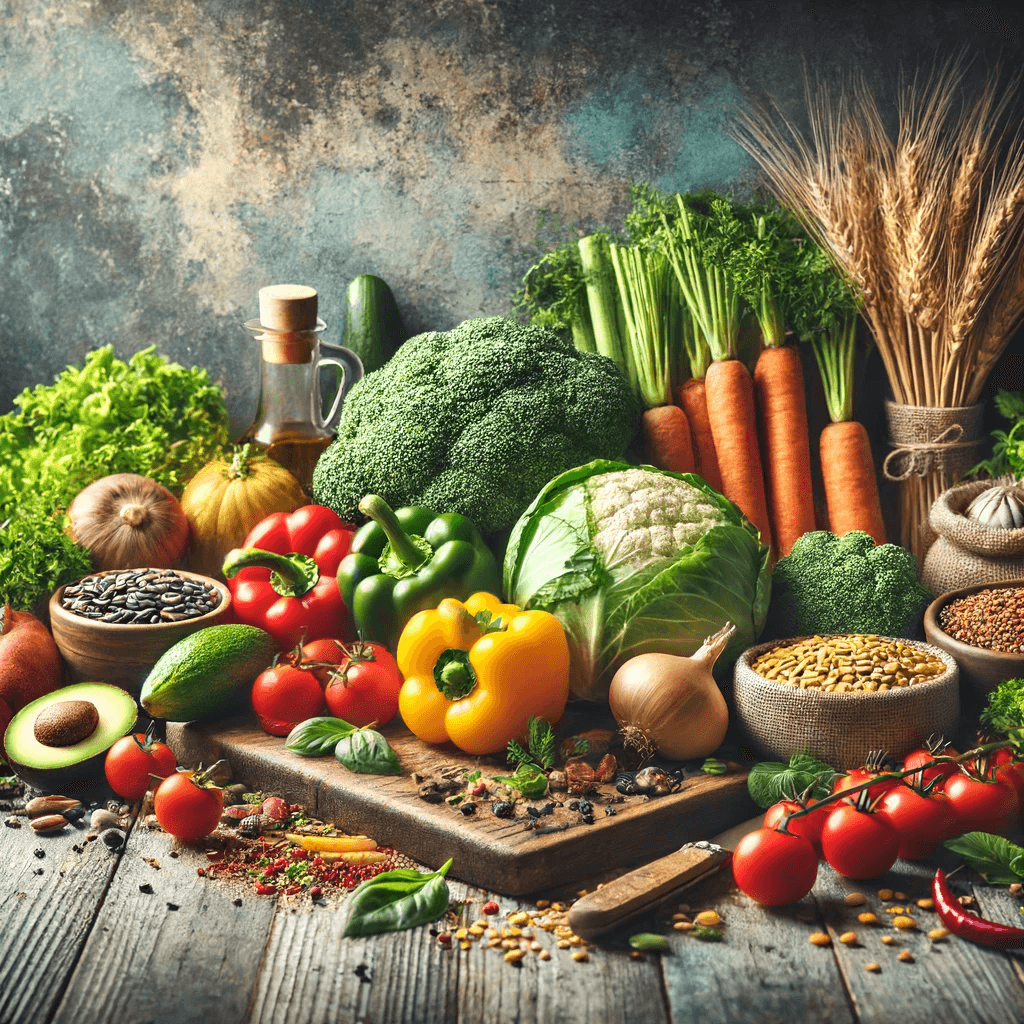
The Reducetarian Movement: Mindful Eating for a Healthier Planet
Discover How Reducing Meat Consumption Can Benefit Your Health and the Environment, Plus a Delicious Plant-Forward Recipe
Jun 18th, 2024

Discover How Reducing Meat Consumption Can Benefit Your Health and the Environment, Plus a Delicious Plant-Forward Recipe
Jun 18th, 2024

In recent years, the world has seen a surge of interest in sustainable living and healthier eating habits. One movement that has gained significant traction is reducetarianism—a lifestyle choice that emphasizes reducing, rather than completely eliminating, meat consumption. This approach offers a flexible and practical way to improve personal health and benefit the environment without the need to fully commit to a vegetarian or vegan diet.
At its core, reducetarianism is about making mindful decisions to consume less meat, whether by having meat-free days, reducing portion sizes, or substituting plant-based ingredients in favorite recipes. The concept appeals to a broad audience because it doesn’t demand perfection or a drastic dietary overhaul. Instead, it encourages gradual changes that can lead to significant long-term benefits. For those who find it challenging to give up meat entirely, this moderate approach provides a manageable and sustainable alternative.
The appeal of reducetarianism lies in its simplicity and adaptability. By incorporating more plant-based foods into their diet, individuals can enjoy a variety of health benefits, including lower risks of chronic diseases, improved digestion, and enhanced weight management. Moreover, reducetarianism aligns with the growing awareness of the environmental impact of meat production. By reducing meat consumption, we can help decrease greenhouse gas emissions, conserve water resources, and promote more sustainable agricultural practices.
Adopting a reducetarian lifestyle also allows for culinary creativity. With the vast array of plant-based ingredients available, there are endless opportunities to explore new recipes and flavors. From hearty legumes and grains to vibrant vegetables and fruits, the plant kingdom offers a wealth of nutritious and delicious options that can transform everyday meals. Additionally, reducetarianism encourages the use of high-quality, sustainably-sourced meats, ensuring that when meat is consumed, it is done so with consideration and respect for the environment.
As more people become aware of the health and environmental benefits of reducetarianism, it’s clear that this movement has the potential to create positive change on both an individual and global scale. Whether you’re a dedicated carnivore or a curious foodie, the reducetarian approach offers a flexible and inclusive way to eat more mindfully and live more sustainably. In the sections that follow, we will delve deeper into the advantages of reducetarianism, provide practical tips for incorporating it into your lifestyle, and share a delicious plant-forward recipe that exemplifies the principles of this movement.

Transitioning to a reducetarian lifestyle doesn’t mean giving up the flavors and textures you love. Instead, it offers an exciting opportunity to explore creative ways to incorporate more plant-based foods into your diet while still enjoying meat in moderation. One delicious and satisfying recipe that perfectly embodies the reducetarian approach is Quinoa and Black Bean Stuffed Peppers with Ground Turkey. This dish combines the richness of ground turkey with the wholesome goodness of quinoa and black beans, creating a hearty meal that is both nutritious and flavorful.
Ingredients:
Instructions:
This recipe is a fantastic example of how reducetarianism can be both delicious and nutritious. By combining the protein-packed goodness of ground turkey with the fiber-rich benefits of quinoa and black beans, this dish provides a well-rounded meal that satisfies both meat lovers and plant enthusiasts alike. The use of vibrant bell peppers not only adds a burst of color to your plate but also delivers a dose of vitamins and antioxidants, making this dish as healthy as it is tasty.
Incorporating recipes like this into your meal rotation is a great way to embrace the reducetarian lifestyle. It allows you to enjoy the flavors and textures you love while reducing your overall meat consumption and exploring the diverse and delicious world of plant-based ingredients.
Adopting a reducetarian lifestyle can lead to a host of health benefits. By consciously reducing meat consumption and incorporating more plant-based foods into your diet, you can improve your overall well-being in several significant ways.
One of the most compelling reasons to embrace reducetarianism is its potential to enhance your nutritional intake. Plant-based foods are rich in essential nutrients, vitamins, and minerals that are often lacking in a meat-heavy diet. For example, legumes, whole grains, vegetables, and fruits are excellent sources of dietary fiber, which is crucial for maintaining a healthy digestive system. Fiber aids in digestion, prevents constipation, and helps to regulate blood sugar levels, reducing the risk of type 2 diabetes.
Moreover, plant-based foods are typically lower in saturated fats and cholesterol compared to animal products. High intake of saturated fats and cholesterol has been linked to increased risk of heart disease. By reducing meat consumption, particularly red and processed meats, and opting for healthier plant-based alternatives, you can lower your cholesterol levels and reduce your risk of cardiovascular diseases. Foods such as nuts, seeds, avocados, and olive oil provide healthy fats that support heart health and reduce inflammation.
Another significant benefit of reducetarianism is its positive impact on weight management. Plant-based diets are generally lower in calories and higher in fiber, which can help with weight loss and maintaining a healthy weight. High-fiber foods promote a feeling of fullness, which can reduce overall calorie intake and prevent overeating. This is particularly beneficial for those looking to shed excess pounds or maintain their current weight without resorting to restrictive diets.
Furthermore, incorporating more plant-based meals can increase your intake of antioxidants and phytonutrients, compounds found in plants that have been shown to protect against chronic diseases and support overall health. These nutrients can enhance your immune system, improve skin health, and even contribute to better mental health by reducing inflammation and oxidative stress in the body.
While the primary focus of this section is on the health benefits of reducetarianism, it’s important to note the significant positive impact it has on the environment. Reducing meat consumption helps lower greenhouse gas emissions, conserves water, and reduces deforestation and habitat destruction caused by livestock farming. This creates a healthier planet, which in turn supports overall human health.
Many individuals who have adopted a reducetarian lifestyle report noticeable improvements in their health and well-being. For instance, some people experience increased energy levels and improved digestion, while others find it easier to manage their weight and reduce their reliance on medication for conditions like high blood pressure and high cholesterol. These personal stories underscore the practical benefits of reducetarianism and serve as inspiration for those considering this lifestyle change.
Incorporating more plant-based foods and reducing meat intake doesn’t have to be a daunting task. With a variety of delicious and nutritious options available, it can be an enjoyable and rewarding journey towards better health. Whether you’re aiming to improve your heart health, manage your weight, or simply feel better overall, reducetarianism offers a flexible and sustainable way to achieve your goals.

Transitioning to a reducetarian lifestyle can be straightforward and enjoyable with a few practical strategies. By incorporating plant-based meals into your routine and making thoughtful choices about meat consumption, you can ease into this balanced approach to eating. Here are some tips to help you get started and stay motivated.
Effective meal planning is key to a successful reducetarian lifestyle. Start by designating a few days each week as meat-free days. This can help you gradually reduce your meat consumption without feeling deprived. Planning your meals in advance ensures that you have all the necessary ingredients on hand and can avoid last-minute temptations to opt for meat-heavy dishes.
When planning your meals, focus on incorporating a variety of plant-based proteins such as beans, lentils, tofu, and tempeh. These ingredients are not only nutritious but also versatile, allowing you to experiment with different cuisines and flavors. For example, you could make a hearty lentil stew, a tofu stir-fry, or a chickpea curry.
Learning how to substitute ingredients in your favorite recipes can make reducetarianism more accessible. Here are some common substitutions to help you get started:
Experimenting with these substitutions can help you discover new flavors and textures, making your meals both satisfying and nutritious.
Ensuring a balanced diet is crucial when adopting a reducetarian lifestyle. Focus on a variety of nutrient-dense foods to meet your dietary needs. Here are some tips to maintain a balanced diet:
By focusing on these key nutrients, you can create well-balanced meals that support your overall health and well-being.
One of the joys of reducetarianism is the opportunity to explore new recipes and culinary traditions. Experiment with international cuisines that naturally emphasize plant-based foods, such as Mediterranean, Indian, and Middle Eastern dishes. These cuisines offer a wealth of flavors and ingredients that can make your reducetarian journey exciting and delicious.
Try cooking a new plant-based recipe each week to keep your meals interesting and varied. There are countless resources available, from cookbooks to food blogs, that provide inspiration and guidance for plant-based cooking.
Incorporating these practical tips into your daily routine can make reducetarianism an enjoyable and sustainable lifestyle choice. By planning your meals, experimenting with ingredient substitutions, ensuring a balanced diet, and exploring new recipes, you can seamlessly integrate more plant-based foods into your diet while still enjoying the occasional meat dish.
Embracing the reducetarian lifestyle is a powerful way to improve your health, support environmental sustainability, and enjoy a diverse array of delicious foods. By reducing your meat consumption and incorporating more plant-based meals into your diet, you can experience numerous benefits without the need for drastic dietary changes. This flexible and inclusive approach allows you to make mindful choices that align with your personal preferences and lifestyle.
As we’ve explored, the health advantages of reducetarianism are significant. By focusing on nutrient-dense plant-based foods, you can improve digestion, lower your risk of chronic diseases, and maintain a healthy weight. The environmental impact of reducing meat consumption is equally compelling, contributing to the reduction of greenhouse gas emissions, conservation of water, and promotion of sustainable farming practices.
Practical strategies such as effective meal planning, ingredient substitutions, ensuring a balanced diet, and exploring new recipes can make the transition to reducetarianism both manageable and enjoyable. By taking small steps and gradually incorporating these practices into your daily routine, you can create lasting changes that benefit both your health and the planet.
The recipe for Quinoa and Black Bean Stuffed Peppers with Ground Turkey is just one example of how delicious and satisfying reducetarian meals can be. By continuing to experiment with plant-based ingredients and exploring the wealth of culinary options available, you can discover a new world of flavors and textures that make reducetarianism a rewarding and sustainable lifestyle choice.
Whether you’re just beginning your reducetarian journey or looking to deepen your commitment, the key is to make mindful, intentional choices that reflect your values and goals. Every small step counts, and together, these steps can lead to significant positive changes for both your personal health and the environment.
As you embark on this journey, remember to celebrate your progress and enjoy the process of discovering new foods and recipes. The reducetarian lifestyle is not about restriction but about abundance—embracing a diverse, flavorful, and healthful way of eating that supports a sustainable future for all.
Sign up for our newsletter and be the first to receive mouthwatering recipes, kitchen hacks, and exclusive gadget reviews straight to your inbox. Let’s cook up something amazing together!
Unlock culinary enchantment with Kitchen Wizdom – your gateway to delectable recipes, kitchen hacks, and the magic of food wizardry. Let the cooking adventure begin!
Copyright ©2026 Kitchen Wizdom. All Rights Reserved.